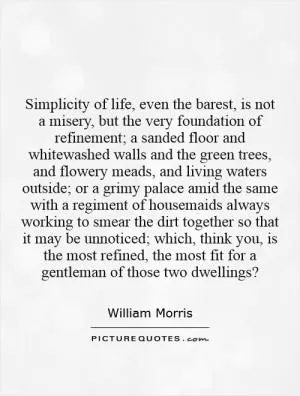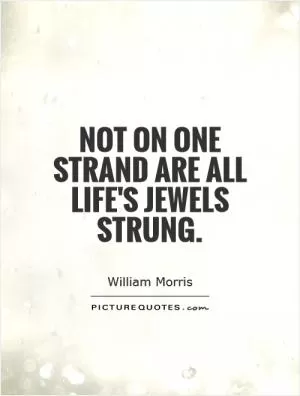If you cannot learn to love real art at least learn to hate sham art

If you cannot learn to love real art at least learn to hate sham art
William Morris, a prominent figure in the Arts and Crafts movement of the 19th century, was a staunch advocate for the importance of authentic and meaningful art. He believed that art should be a reflection of the natural world and the human experience, and that it should be created with integrity and craftsmanship. In his famous quote, “If you cannot learn to love real art at least learn to hate sham art,” Morris encapsulates his belief that true art should be valued and cherished, while imitation and superficiality should be rejected.Morris was deeply critical of the mass-produced, machine-made goods that were becoming increasingly popular during his time. He saw these products as soulless and devoid of the creativity and individuality that he believed were essential to true art. Instead, Morris championed the idea of handmade, artisanal goods that were created with care and attention to detail. He believed that art should be a reflection of the values and beliefs of the artist, and that it should inspire and uplift those who experienced it.
For Morris, the distinction between real art and sham art was clear. Real art was authentic, meaningful, and created with passion and skill. Sham art, on the other hand, was superficial, mass-produced, and lacking in substance. Morris believed that true art had the power to transform society and elevate the human spirit, while sham art only served to perpetuate mediocrity and conformity.
In today's world, where mass-produced goods and digital technology dominate the art world, Morris's message is more relevant than ever. As consumers, we are bombarded with images and products that are designed to appeal to our basest instincts and desires. It can be easy to be seduced by the allure of cheap, disposable goods that offer instant gratification. However, Morris reminds us that true art is worth seeking out and cherishing, even if it requires more effort and investment.












 Friendship Quotes
Friendship Quotes Love Quotes
Love Quotes Life Quotes
Life Quotes Funny Quotes
Funny Quotes Motivational Quotes
Motivational Quotes Inspirational Quotes
Inspirational Quotes